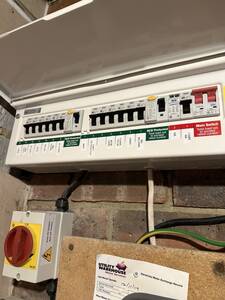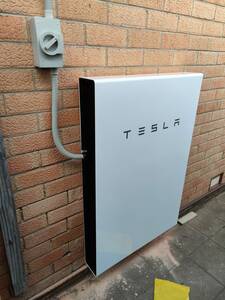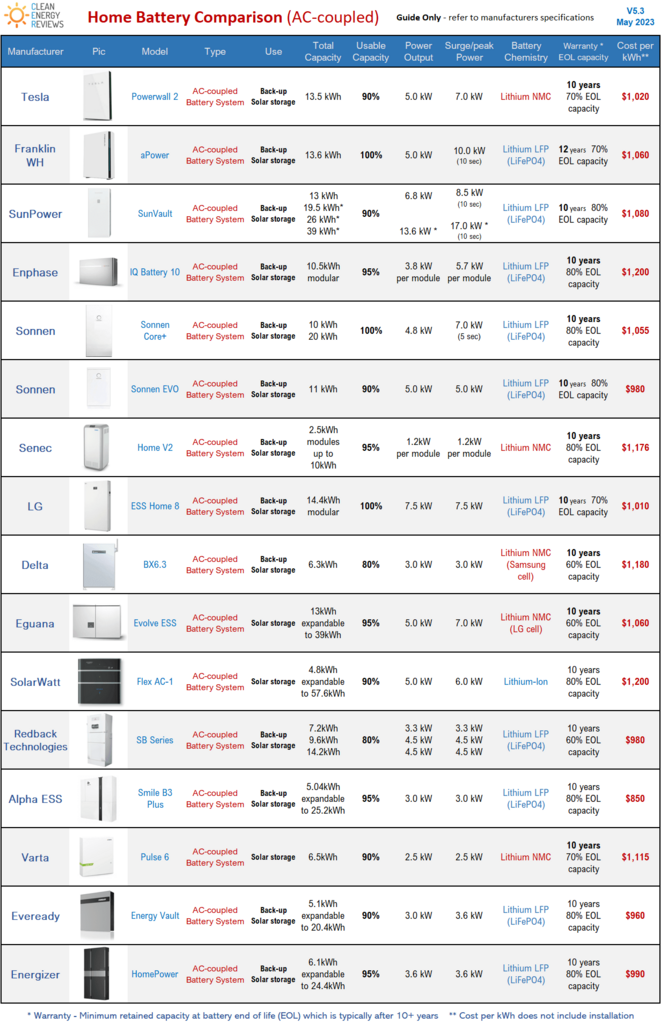Batteries as part of the EV experience and solar power have long been on our review list. We’ve been put off by costs. Getting the car has led us to once again review options, costs and the return on the considerable investment.
Updated 05 Oct 23
Installation
Surprise call from Spirit Energy on 5 Oct. They have a cancellation and we can get our wall installed on 6th Oct! Quick clear out of some boxes out of the way and we’re all set. Our new Consumer Unit fuse box was fitted last week. All home circuits now have full RCD protection in one large unit.

Decision Made
We have ordered the Tesla Powerwall from approved installer Spirit Energy – Announced in see post

Initial costs are >£10k plus we need some remedial electrician work on home RCDs for some circuits. Installation is expected at the end of October and we need to await permissions which means system will be power limited to 3.5 kw/h until they come through. (Update 24 Sep they have already been granted.)
Batteries – What To Get
There is a run down of some options on the main discussion page here. We decided on Tesla Powerwall.
We had some pre-conceptions wanting a minimum of 9 kw/h capacity and of course we want it to work with our solar and soon to be fitted Home charger – the Zappi; therefore, it needs to be smart, as well as good. That’s especially true if we want to switch to clever energy rates to take advantage. These allow the battery to be charged at off peak as well as from Solar.
Batteries – Discharge rates
Battery Rates
What rates can batteries supply at to a charger or to the house. The battery has a capacity, but also a charge rate. This is the maximum rate the battery can discharge to connected appliances. For us that means the house, but primarily the EV Charger. The chosen, purchased and installed charger is the Zappi. It is capable of 22kw/h charge rate with 3 phase or other suitable supply.
Limitations
From reading specifications and forum posts it seems that there are other limits and complications. Most seem to have maximum capable of 5,000 VA output but I can’t seem to find a simple answer although several imply that this is actually 7,000 VA. That would run the Zappi at 7kw/h from a Powerwall for nearly 2 hrs, if there was no other supply and nothing else using the battery’s discharge e.g. the house!
Battery Calculations
The calculations get more complex as each component can be scheduled, adjusted and controlled. We have a limit from solar of 3.6kw/h when the panels can provide maximum output. The Powerwall has >13kw/h so >4 hours of max charge from solar. With a 30 amp feed from mains (30Ax240V = 7.2kw/h) that’s <2 hours. The car can take whatever we can throw at it but limits inbound current (and power) based on supply. The car, the Zappi, and soon the Powerwall can adjust delivery based on times, (to take advantage of cheaper mains energy), solar output (Zappi Eco+) or car setting for max charge (recommended 80% battery). Another setting allows the car to be ready at desired capacity by a certain time. Finally, with our switch to Octopus Energy Intelligent tariff the power company can talk direct to the car. Their cheap rate can be supplied outside the scheduled time when they have excess power, if used for the EV (or battery) via the charger.
Battery Comparison
The US site https://www.cleanenergyreviews.info/battery-storage-comparison-chart has this table. That implies surge/peak power at the rates shown.

The UK site https://www.theecoexperts.co.uk/solar-panels/the-best-storage-batteries has reviews too, with typical battery prices. Installation and extras are on top. This can also include replacement inverters for solar delivery. Most show around £11,000 for the system. In other words, this is not a cheap option.
Batteries – The Short List
Powerwall
Slick stylish expensive full of smarts. Capacity 13.2kw/h per module max 10 modules. Provides house back up too. Not always provided in some batteries. Now ordered with home back up too. Due for Installation on 30 October
All In One
Like the Powerwall slightly higher capacity at 13.6kw/h
ESS
Modular format adding up to 13.3 kw/h per unit
Powervault
Up to 24 kw/h modular format
Decision
Decision made – we’ve gone with the Tesla.





